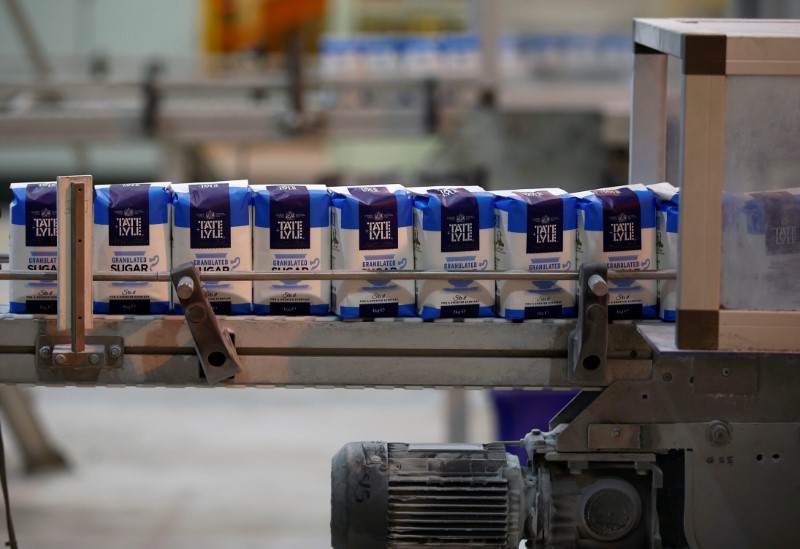Asahi shares mark weekly slide after cyberattack halts production
Investing.com -- Barclays downgraded food and beverage products supplier Tate & Lyle (LON:TATE) to “equal weight” from “overweight” rating , cutting its price target to 430p from 650p, citing weaker-than-expected earnings prospects and growing structural headwinds, in a note dated Friday.
The brokerage said it is concerned the company’s revised fiscal 2026 guidance is not conservative enough and could face further pressure from a weaker contract round that will weigh on fiscal 2027 earnings.
The downgrade follows a series of setbacks for Tate & Lyle , including a profit warning earlier this week and continuing weakness in its legacy Food & Beverage Solutions business.
Barclays said it underestimated the scale of pressure on this division, which has been hit by price competition in Europe and Asia as well as demand weakness in North America.
While sucralose sales have held up and the CP Kelco business continues to show margin improvement, the report noted that these positives were not enough to offset broader deterioration in starch-based ingredients.
Former FDA commissioner David Kessler’s August citizen petition also poses a potential regulatory overhang.
The filing urged the FDA to revoke the “generally recognized as safe” status for refined carbohydrate ingredients, including high fructose corn syrup and modified starches.
Barclays said that while the likelihood of a full revocation remains low, the petition adds uncertainty for Tate and other U.S. producers. About 15% of Tate’s fiscal 2026 pro forma group sales could be in scope if stricter regulations were enacted.
The brokerage’s updated forecast now assumes a 5% constant-currency EBITDA decline in fiscal 2026, compared with Tate’s own guidance for a low single-digit decline. For fiscal 2027 and 2028, Barclays has cut its EBITDA estimates by 11-12%, citing greater unit margin pressure in the core starch-based portfolio.
Balance sheet leverage is also expected to rise, with net debt to EBITDA forecast to move above the company’s mid-range target in fiscal 2026, and potentially higher in a bear-case scenario.
Barclays said speculation about private equity interest, which had supported the stock last year, is less likely to provide support now given weaker earnings power and new overhangs from tariffs and regulatory risks.
With shares already down sharply since April, the bank added that even a relatively cheap valuation is unlikely to drive outperformance without a clearer recovery in earnings momentum.
